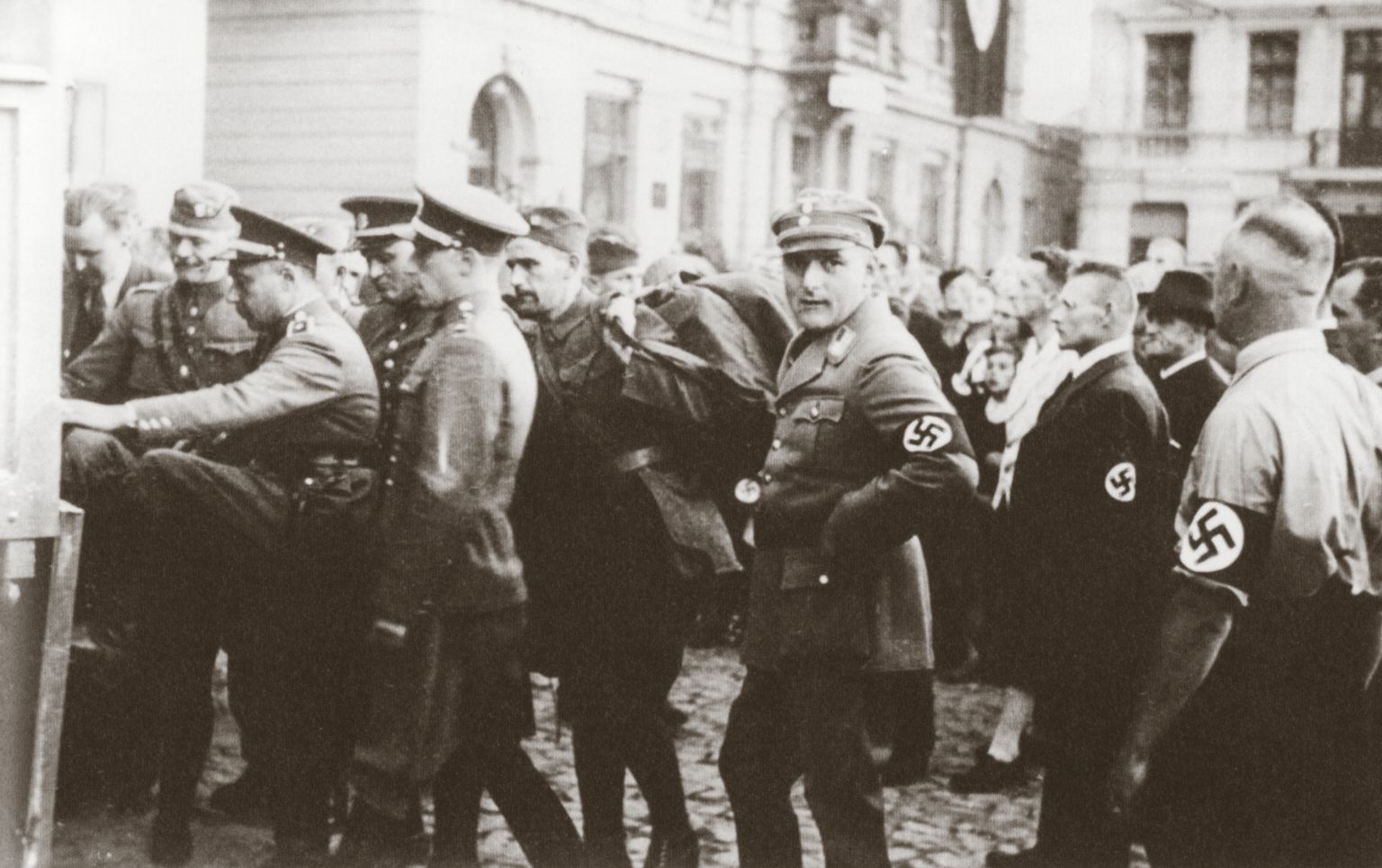
Did you know the Czech-Germany War, also known as the Sudeten Crisis, played a pivotal role in shaping Europe’s history? This conflict, which erupted in 1938, was a significant precursor to World War II. The tension between Czechoslovakia and Nazi Germany escalated due to the Sudetenland region, home to many ethnic Germans. Adolf Hitler’s aggressive demands for this territory led to intense international negotiations and ultimately, the Munich Agreement. This agreement, signed by Germany, Italy, France, and the United Kingdom, allowed Germany to annex the Sudetenland without Czechoslovakia's consent. The crisis highlighted the failure of appeasement and set the stage for further Nazi expansion. Understanding this conflict provides crucial insights into the events leading up to the global war that followed.
Key Takeaways:
- The Czech-Germany War, also known as the Sudeten Crisis, was a conflict in 1938 over the Sudetenland, with Hitler using diplomatic pressure and military threats to annex the region.
- The war had lasting consequences, emboldening Hitler, leading to the policy of appeasement, and ultimately weakening Czechoslovakia's economy and military capabilities.
The Prelude to the Czech-Germany War
Before diving into the facts, it's essential to understand the backdrop of the Czech-Germany War. This conflict, rooted in deep historical tensions, reshaped the region's political landscape.
- The Czech-Germany War, also known as the Sudeten Crisis, took place in 1938.
- The conflict primarily revolved around the Sudetenland, a region in Czechoslovakia with a significant ethnic German population.
- Adolf Hitler used the plight of ethnic Germans in the Sudetenland as a pretext to annex the region.
- The Munich Agreement, signed in September 1938, allowed Germany to annex the Sudetenland without military intervention.
- British Prime Minister Neville Chamberlain famously declared the Munich Agreement would bring "peace for our time."
Key Players and Alliances
Understanding the main actors and their alliances provides insight into the war's dynamics and outcomes.
- Czechoslovakia was led by President Edvard Beneš during the crisis.
- Germany, under Adolf Hitler, sought to expand its territory and influence in Europe.
- France and the United Kingdom initially supported Czechoslovakia but later conceded to Germany's demands.
- The Soviet Union offered military assistance to Czechoslovakia, but logistical challenges and political hesitations hindered their support.
- Italy, led by Benito Mussolini, played a mediating role in the Munich Agreement negotiations.
Military Strategies and Tactics
The strategies and tactics employed during the Czech-Germany War were pivotal in determining the conflict's course.
- Czechoslovakia had a well-fortified border in the Sudetenland, known as the Czechoslovak Wall.
- Despite their strong defenses, Czechoslovakia's military was outnumbered and outgunned by the German Wehrmacht.
- Germany used a combination of diplomatic pressure and military threats to achieve its objectives without significant bloodshed.
- The Czechoslovak government mobilized its forces but ultimately decided against a full-scale war due to lack of international support.
- The annexation of the Sudetenland provided Germany with valuable military resources and strategic positions.
Impact on Civilians
Wars inevitably affect civilians, and the Czech-Germany War was no exception. The conflict had profound consequences for the people living in the region.
- Approximately 3 million ethnic Germans lived in the Sudetenland before the annexation.
- Many ethnic Czechs and Slovaks were forced to flee their homes as German forces moved in.
- The annexation led to widespread displacement and hardship for non-German populations in the region.
- The Sudeten Germans, who initially welcomed the annexation, soon faced the harsh realities of Nazi rule.
- The Munich Agreement's failure to protect Czechoslovakia's sovereignty left a lasting scar on the nation's collective memory.
Long-term Consequences
The Czech-Germany War had far-reaching implications that extended well beyond the immediate conflict.
- The annexation of the Sudetenland emboldened Hitler and set the stage for further German aggression in Europe.
- The Munich Agreement is often cited as a prime example of the policy of appeasement, which ultimately failed to prevent World War II.
- Czechoslovakia was further dismembered in March 1939 when Germany occupied the remaining Czech territories, creating the Protectorate of Bohemia and Moravia.
- The war and subsequent occupation severely weakened Czechoslovakia's economy and military capabilities.
- The events of the Czech-Germany War highlighted the dangers of compromising with aggressive powers, influencing future international policies and alliances.
Reflecting on the Czech-Germany War
The Czech-Germany War, a pivotal moment in European history, left a lasting impact on both nations. This conflict, marked by intense battles and significant political shifts, reshaped borders and influenced future alliances. Understanding the key events and figures involved helps us appreciate the complexities of this period. From the strategic maneuvers to the human stories, every aspect of this war offers valuable lessons. By examining these facts, we gain insight into the resilience and determination of those who lived through it. This war not only altered the course of history but also serves as a reminder of the importance of diplomacy and cooperation in preventing future conflicts. As we reflect on this war, we honor the sacrifices made and the enduring spirit of those who fought for their beliefs.
Frequently Asked Questions
Was this page helpful?
Our commitment to delivering trustworthy and engaging content is at the heart of what we do. Each fact on our site is contributed by real users like you, bringing a wealth of diverse insights and information. To ensure the highest standards of accuracy and reliability, our dedicated editors meticulously review each submission. This process guarantees that the facts we share are not only fascinating but also credible. Trust in our commitment to quality and authenticity as you explore and learn with us.
